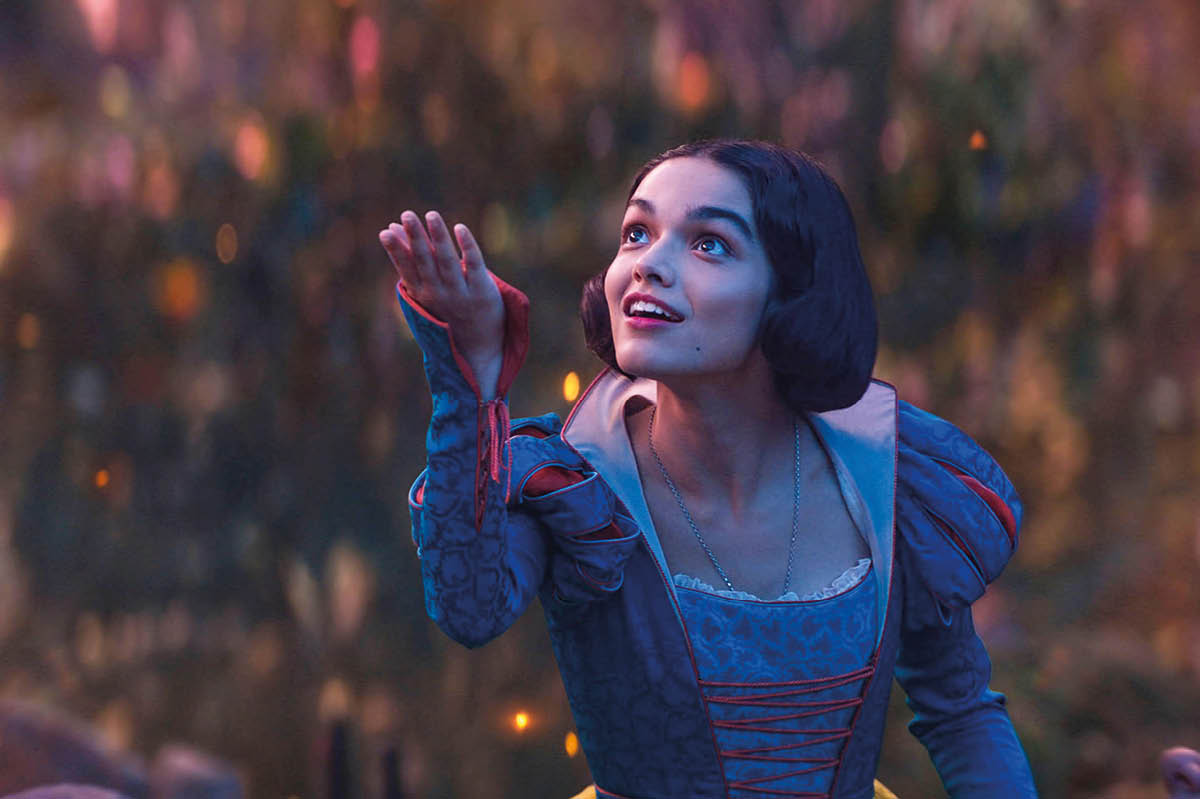Unless you have been rock-bound over the last few weeks – or avoiding all social media, which in 2025 amounts to much the same – you can scarcely have missed the controversy over the recent three-night gala staging of the Andrew Lloyd Webber and Tim Rice rock opera Jesus Christ Superstar at the Hollywood Bowl. Jesus, you see, is not played by a white man, as is customary, but Cynthia Erivo, the Wicked star who is black, female and queer.
This has not gone down well with traditionalists, but Erivo is one of the most talented singers working today – as well as a fine actress – and so, if the first reviews are to be believed, she blew the roof off the Hollywood Bowl, stealing the show entirely from a starry cast including Adam Lambert and Josh Gad. As a Forbes critic sighed, “If you missed Jesus Christ Superstar at the Hollywood Bowl this past weekend, you really lost out on seeing one of the great and memorable stage extravaganzas that Los Angeles has witnessed in recent years.”
The night was clearly a triumph for Erivo, Lambert, Gad and the director-choreographer Sergio Trujillo, but it was also an impressive achievement for the show’s original creators. Jesus Christ Superstar was first performed on Broadway in 1971, and over the intervening five and a half decades, it has overcome some rather half-hearted religious protests (mainly because it does not show Christ’s resurrection, only his crucifixion) to become a much-loved and massively successful musical. Yet its latest, most glittering incarnation raises a question that few would have thought would be asked in 2025: how did the now 77-year-old Lloyd Webber become the hottest composer on both sides of the Atlantic?
When I was growing up, Lord Lloyd Webber, as he has now become, was two things: immensely successful and hugely unfashionable. Although such musicals as Cats, Phantom of the Opera and Starlight Express were the blockbuster shows of their day, running for years if not decades to rapturous and sold-out audiences, he was damned with that most sneering of sobriquets – “middlebrow” – and his work was thought to be basic and undemanding in the extreme. Leaving aside the essential weirdness of much of it – who else would have thought of turning a series of TS Eliot poems into a musical entertainment? – there was always a sense that Lloyd Webber’s unpopularity stemmed in part from jealousy, and in part from his right-wing political views, which saw him raised to the House of Lords as a Conservative peer: anathema to a traditionally left-leaning institution (though he left the red benches in 2017.)
He never stopped being successful, although flop after flop a few years ago dented his standing: his Phantom sequel, Love Never Dies, was a notorious flop, and a musical about the true protagonist of the Profumo affair, Stephen Ward, was an uneasy mixture of lushness and realism. A collaboration with that most divisive of writers, Emerald Fennell, resulted in a flop Cinderella, and many might have assumed that Lloyd Webber was yesterday’s man.
But two collaborations with that most thrusting and successful of young British directors, Jamie Lloyd, in the form of the Nicole Scherzinger – starring Sunset Boulevard and Rachel Zegler in Evita, have brought his musicals back into the mainstream (not that he ever left) and given him a newfound credibility. In London at the moment, Zegler’s nightly appearances outside the Palladium theater, where she performs Evita’s signature number “Don’t Cry for Me, Argentina” live to an audience of grateful passers-by – for free! – has become one of the summer’s most popular tourist attractions. Should she repeat the feat on Broadway, doubtless the same will happen there, too. This, along with the Erivo-starring Jesus Christ Superstar, has made Lloyd Webber, of all unlikely things, hip. Not bad for a septuagenarian peer of the realm.
And the debacle of the Cats film (2019) revealed that he had a sense of humor, too. Sensibly distancing himself from Tom Hooper’s appalling picture, Lloyd Webber announced that “There wasn’t really any understanding of why the music ticked at all. I saw it and I just thought, ‘Oh, God, no.’ It was the first time in my 70-odd years on this planet that I went out and bought a dog.” The puppy, however, came in handy. As Lloyd Webber told Variety,“I wrote off and said I needed him with me at all times because I’m emotionally damaged and I must have this therapy dog. The airline wrote back and said, ‘Can you prove that you really need him?’ And I said ‘Yes, just see what Hollywood did to my musical Cats. Then the approval came back with a note saying, ‘No doctor’s report required.’” It is hard not to agree.


























Leave a Reply